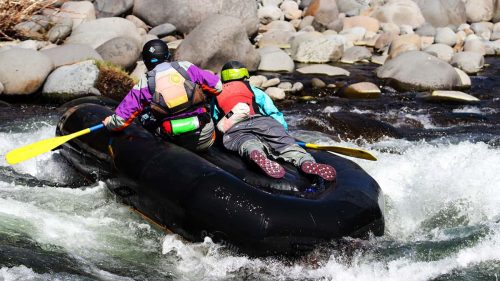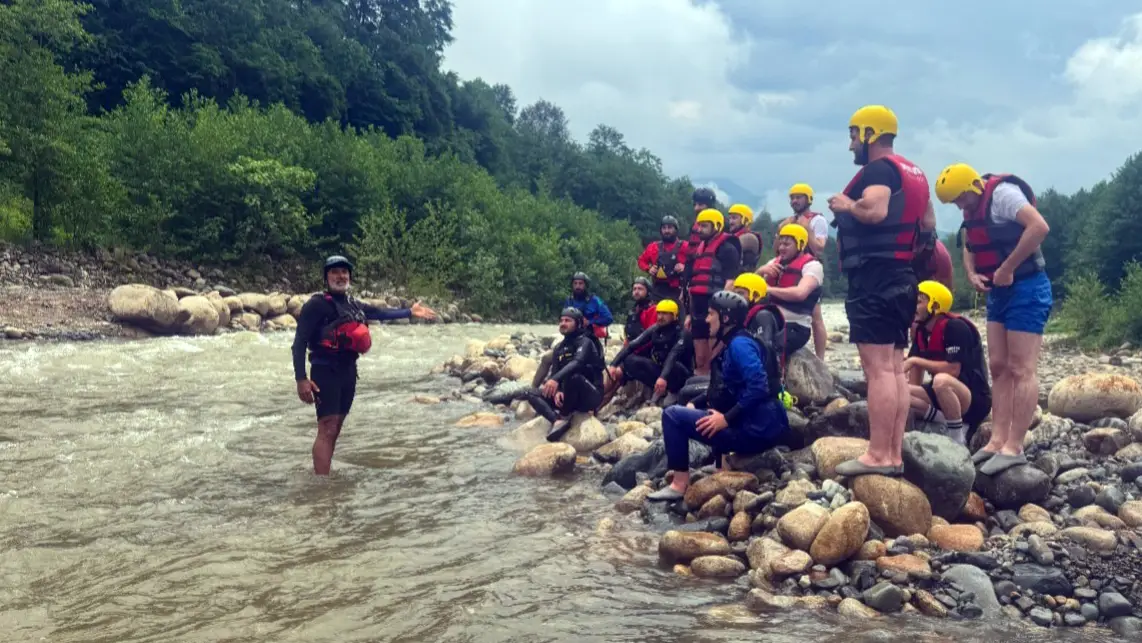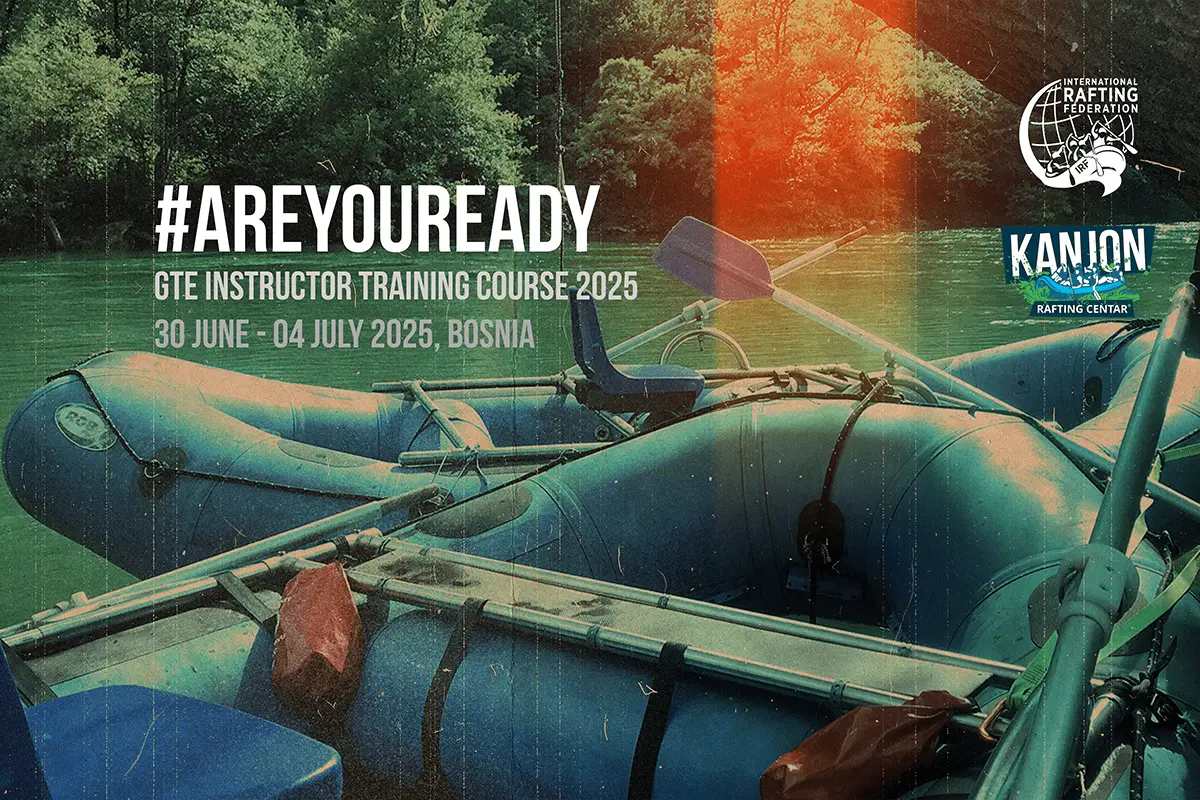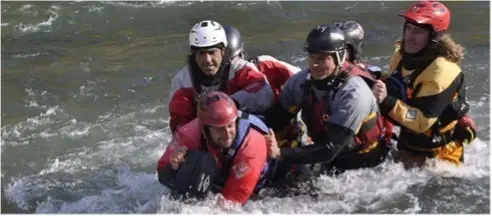Since the release of my first article with the IRF, “5 Steps to Becoming a Rafting Wild Whitewater Woman”, I have been afforded the unique privileges of connecting with a diverse range of people & organisations operating within the outdoor industry; publishing a second article in which I share advice on how to treat the whitewater off-season, and, most recently, to boat in astonishingly beautiful places.
Other than actually earning my place as a whitewater raft guide, nothing has filled me with more pride, and private panic, than my most recent experience facilitated by the IRF!
In early April, I dug out my river gear and traveled from my coastal home in Wilmington, NC to Hood River, Oregon (OR). While in OR, I participated in an IRF Guide Training & Education (GTE) workshop and assessment led by Zach Collier and Dustin Abbott of NorthWest Rafting Company.
For those new to the IRF and its award system, GTE courses work to recognise guides, trip leaders, and instructors who meet internationally accepted standards in rafts and rafting safety crafts. This system is used to provide a universal skill structure across the increasingly diverse whitewater culture and also provide an accessible method of professional development for guides.
I did not entirely know what I was getting myself into when I eagerly agreed to do this trip. I do not believe the IRF completely understood just who it was they were sending. Allow me to explain and introduce myself with greater clarity than my previous work may have allowed.

My name is Annalee Decker. Normally, I pitch myself as a filmmaker, photographer, and commercial whitewater raft guide. Outside of these passions lie some more revealing truths, so allow me to try again.
My name is Annalee Decker. I am a twenty-year-old female raft guide approaching her third season on the water. Although I will be on the New River Gorge, WV, this year, my guiding experience prior to the GTE course was limited to the US National Whitewater Center in Charlotte, NC. For those unaccustomed to white water parks, this outfitter runs trips exclusively on a man-made, concrete course.
In my home state of NC, I cannot legally buy or drink a beer. I cannot check-in to a hotel alone. I cannot rent a car. I barely qualify for a credit card.
Luckily, Oregon state regulations are a bit more permissive and everything aforementioned, besides buying a beer, was in the scope of my ability to do without my mother accompanying me as a chaperone.
It was immediately off to the races upon my arrival to Hood River. I was fortunate enough to be staying with fellow student guides of the course.
We began each day as a unit, groggily wading through damp gear in search of our second or third cups of coffee. Window views of Mt. Hood did wonders to sweeten our beverages and our disposition.
The first three days of any GTE course feature all tests required for base level guide certifications. These assessments include safety talks, basic guiding skills / commands, whitewater swim tests, flip tests, throw bag tests, ropework tests, and a written theory exam.
Unique to the NorthWest IRF class, my fellow participants and I had the opportunity to raft multiple rivers throughout the five day course. As described by lead instructor Zach Collier; “This week will be like a sampling plate of all PNW (Pacific North West) rivers.”
(Before I continue, if you have an opportunity to raft with NorthWest, I cannot recommend it more. The guides are exemplary and outfitter owner Collier is goofily passionate about all things whitewater. You will have a grand time no matter the river you choose.)
While completing the wide range of tests with varied degrees of success, every person was in awe of the amazing rivers we had the opportunity to explore. Within the first three days, we put in on the White Salmon, the Wind, and the Hood River. Each river offered its own amazing views and unique personality.
These rivers also offered different guiding challenges. While on the Salmon, guiding and flip tests were completed. The latter made me very nervous.
In my initial check-out process, my “Moby Dick” white whale was the flip drill. I am short and, when I entered the industry, had virtually no upper body strength with which to aid me in flipping an eight-man raft. I struggled a great deal even getting the thing to turn upside down. I had three minutes and thirty seconds to complete the flip the first time. When I was finally successful, I had seven seconds to spare. With that narrow margin in mind, I could feel the panic creep in as I unhooked my flip line.
To the shock of only myself, I passed the drill in a minute and twenty seconds this time around. My panic turned to pride. On the shuttle afterwards, I even went so far as to text my father “I am a god” in said ridiculous pride.
For me, the flip drill jump started a chain reaction of what I felt was confusing success. Nearly all students testing alongside me had been guiding for almost as long as I have been alive. Even so, we were completing the same tests and passing them together. My imposter syndrome reminded me of my youth but my scores informed me of my ability.
 After successful completion of all other exams, my final barrier was ropework. To pass this test, the candidate must successfully build a 4-3-2-1 z-drag in under five minutes. In my naivety, I had never built one prior to this course. I had never even seen one.
After successful completion of all other exams, my final barrier was ropework. To pass this test, the candidate must successfully build a 4-3-2-1 z-drag in under five minutes. In my naivety, I had never built one prior to this course. I had never even seen one.
Having come too far to fail, at the Wind take-out, I learned how to build a z-drag in about fifteen minutes. With the best of intentions, I grabbed materials in hopes to practice further that night. Instead, I exhaustedly fell asleep on the couch.
The next day, on the upper Hood River, with one practice run, I built a z-drag in four minutes and fifty-nine seconds. My instructors and I cannot explain how I was able to pull this off but it is the truth.
In the final two days, the course moves from guide assessments to trip leader assessments. Qualified students are observed closely by respective instructors as they navigate elaborately staged scenarios as if they were leading an actual trip.
Our assessments took place on the Hood River and, on the last day, the Klickitat River. The Klickitat was a privilege in and of itself because the section we were running had not been open to the public for the past twenty years.
 In addition to having the lesson reinforced that there are always a variety of effective solutions to trip problems, the final days revealed what I find to be the most invaluable purpose of GTE courses: connection.
In addition to having the lesson reinforced that there are always a variety of effective solutions to trip problems, the final days revealed what I find to be the most invaluable purpose of GTE courses: connection.
Any boater can tell you there is a special connection created between yourself and the people with whom you share the water. That connection is only made stronger by repetition, most easily facilitated among guides running trips under a common employer.
You build a family with your fellow outfitter guides. Unfortunately, this family can result in guides developing a single-minded focus when it comes to whom they share information. The unintended result is new ideas or different methods can become “landlocked” to specific groups and/or regions.
IRF GTE courses challenge this regionalisation by pushing guides of all backgrounds, rivers, and outfitters together. What results is an educational bonding experience where, in my case, I helped a guide ten years my senior smooth out her pry stroke, or when another guide pulled me aside to show me how to properly attach prusiks in order to complete my z-drag.
The skills and certifications I earned are invaluable to my future guiding career. Of even greater value, however, is the unified international community of professional guides being forged through GTE courses. Whether you work on the US East or West Coast, New Zealand, or in Europe, every guide is on the river because of a shared love for it. We can all teach each other. We should not be disjointed.
 Before disappearing into my tent for another season of whitewater, I would like to present a final call-to-action: sign up for an IRF GTE course. Maybe your experience will not feature my dramatic hurdles, but you will still be challenged, frustrated, and oh so stoked. You will do things that make you uncomfortable, and you will emerge on the other side a better boater because of it.
Before disappearing into my tent for another season of whitewater, I would like to present a final call-to-action: sign up for an IRF GTE course. Maybe your experience will not feature my dramatic hurdles, but you will still be challenged, frustrated, and oh so stoked. You will do things that make you uncomfortable, and you will emerge on the other side a better boater because of it.
Bet on yourself and don’t panic. Rewarding things happen to those who dare to try!
#womenofwhitewater #thisisrafting #raftguide #gte #areyouready #raftersareawesome




